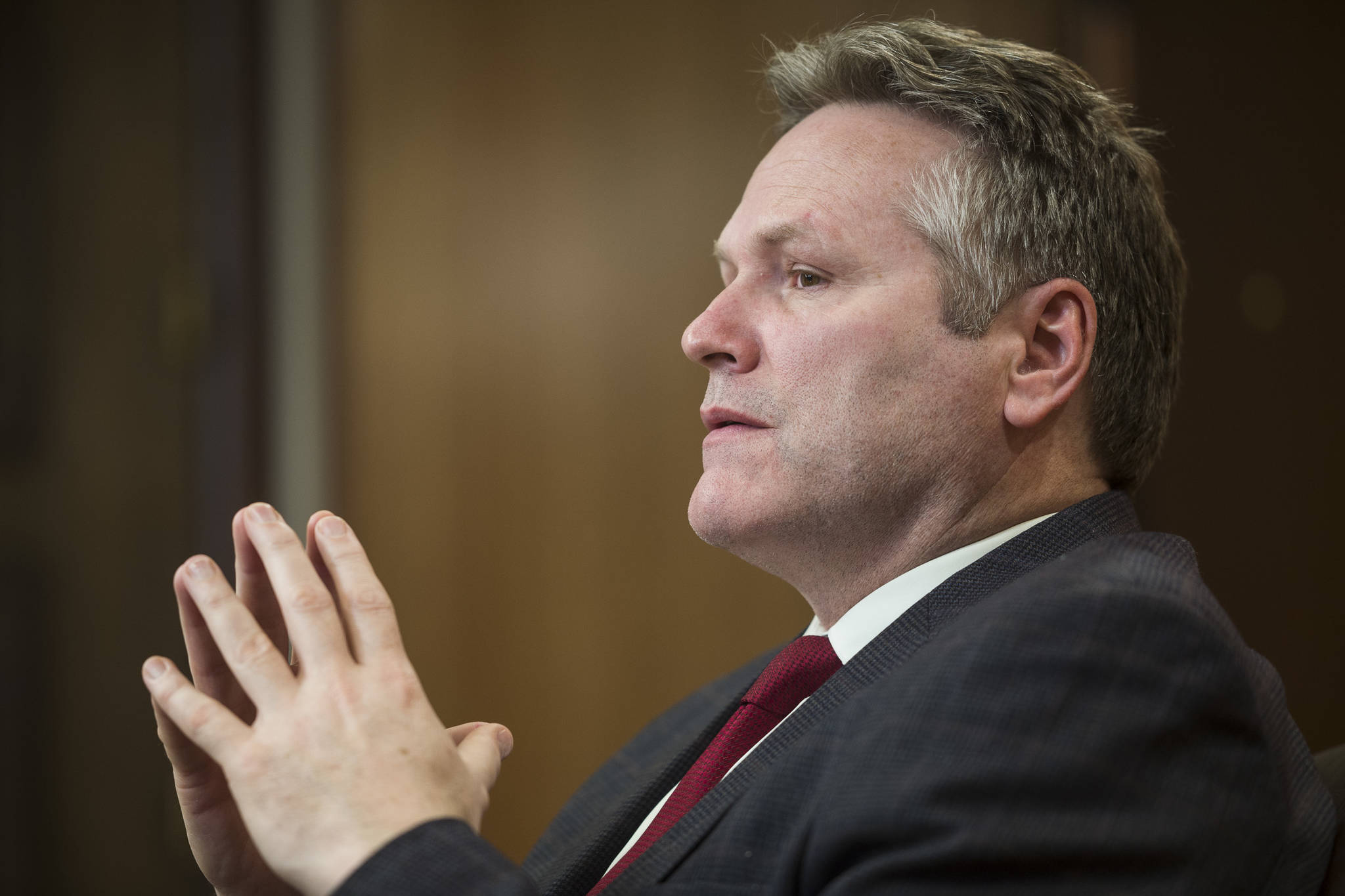Gov. Mike Duleavy will be heading out to speak with the people of Alaksa starting Monday, Feb. 3, on the first leg of his town hall series.
At a press conference with reporters Friday at the Alaska State Capitol, Dunleavy said his purpose was to hear directly from Alaskans.
“When I go to these meetings, I’ll be meeting with city councils, tribal governments, school boards, potentially nonprofits. Groups that are in these communities,” he said. The visits will conclude with public town hall meetings with residents.
One of the main questions he wants to ask is how people view resource development as a part of Alaska’s future.
“Our existence is predicated on resource development, I think people have forgotten that,” Dunleavy said. “There was a robust discussion with the federal government: how does this territory that is so big with such a small population pay for itself? So we were essentially mandated to develop our resources to create wealth. Mandated.”
Without resource development, Dunleavy said, the state has limited options for revenue.
“That’ll be the question I ask when I go to some of these town hall meetings. How do you see resource development in Alaska’s future for local revenue, for local jobs and then what are your ideas on how to close the budget gap? What do you want to do with the Permanent Fund? The PFD? What revenue measures do you want to consider, if any,” he said.
Legislators have said repeatedly they believe allocating a smaller PFD was one way to bridge the gap. Earlier Friday morning in a meeting with reporters, Senate President Cathy Giessel, R-Anchorage, said that she had heard from citizens that they wanted a reduction of the PFD.
“I was getting one email a minute during the time we were discussing the cuts, people saying ‘reduce the size of the dividend but we need to have these services,’” she said.
Giessel said she and her colleagues were committed to preserving the PFD program but a better allocation of resources would be necessary for maintaining essential state services.
For his part, the governor said he wanted to see that sentiment confirmed by a direct vote of the people.
“If I go to the town hall meeting, and I become convinced that the majority of Alaskans want a smaller PFD, that’s good news,” he said. “Then we send them a constitutional resolution because the Legislature should feel comfortable that their position is in sync with the people of Alaska.”
Asked about the counter-argument that Legislators are elected by the people to make decisions on their behalf, the governor said, “then we wouldn’t have an initiative or repeal process in our constitution.”
So far the administration has only announced two town hall events. The first will take place in Petersburg on Feb. 3, and the next in Wrangell on Feb. 4.
The governor said there was not yet an estimate to how much the series of visits, which will be paid for by the state would cost, but added, “there’s a cost to not doing it.”
• Contact reporter Peter Segall at 523-2228 or psegall@juneauempire.com.

